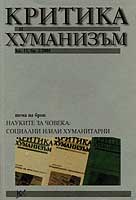ЮРИДИЧЕСКА ВЛАСТ И МОРАЛНОСТ
JUDICIAL POWER AND MORALITY
Author(s): Luc BéginSubject(s): Law, Constitution, Jurisprudence
Published by: Фондация за хуманитарни и социални изследвания - София
Keywords: judicial decisions; legal control
Summary/Abstract: In many modern democracies basic rights have been constitutionalized. So judges have held a considerable power of regulation over social and individual practices. The exercising of legal control in matters that are morally controversial raises the problem of how judges make their decisions. There are many ways of thinking about judicial decision-making in this context. For some people, judges are, or should be, activist: that means they introduce their own moral judgments into the law when they personally disapprove decisions of other branches of government. For other people, judges are, or should be, passivist: they show great deference to these decisions, being neutral in their decisionmaking. Critical of these two approaches that do not carry great explanatory power, the author suggests seeing judges as mediators: they have to be impartial arbiter.
Journal: Критика и хуманизъм
- Issue Year: 2001
- Issue No: 11
- Page Range: 141-160
- Page Count: 20
- Language: Bulgarian
- Content File-PDF

